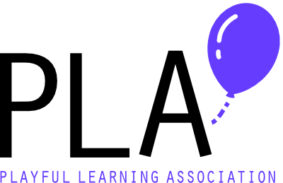Exploring Escape Games to Support Players’ Soft Skills in Adult Education
Corresponding Author: Jana Oehlke
All authors: Rachelle O’Brien
Length: 90 minutes
Location:
Description:
Described as the new frontier for adult education (Uram, Wilcox and Thall, 2010) gaming has seen phenomenal growth in both the recreational and educational markets over the last decade, one example is Escape Rooms (ERs) (Lema and Martin, 2021). ERs involve small groups working together to solve puzzles in a time-constrained environment. They’ve been recognised by the education community for their potential in a wide variety of uses in the classroom such as teaching domain-specific skills, information literacy, and induction activities (Veldkamp, et al., 2020).
ERs require a variety of skills to play, for example; social and communication skills, teamwork, learning through failure, as well as cognitive skills including critical and lateral thinking (Makri et al., 2021). A big draw for using ERs in the classroom results from the low-cost and accessible way to support this key skill practice and development, which is important for students during the early stages (O’Brien and Pitera, 2019). Example skills ERs play supports include: leadership, communication, teamwork (Veldkamp, et al., 2020), collaborative problem solving, critical thinking, learning through failure (O’Brien and Whitton, 2024), and creative thinking.
In a further education context, ERs offer multiple opportunities. As a framework for educators to scaffold and structure lessons, encouraging teamwork and communication, and providing feedback on performance (O’Brien and Pitera, 2019). Additionally, ER play enables students to have experiential skills practice in a safe environment, whilst receiving direct feedback and being supported to reflect on key skills by failing and working through failure in a productive way (O’Brien and Whitton, 2024).
In this session, participants will play a physical escape game (Escape Room – The Game) in a group, choosing between three games varying in difficulty and theme. The game will run for 60 minutes, during which players solve puzzles and try to escape from the imaginary room. Afterwards, a reflective group discussion will give participants room to discuss their thoughts and feelings and reflect on using such games in adult education, particularly the skills this activity can support and considerations regarding implementation. Participants can share previous experiences with escape games, if they have any. This will be followed by a short presentation of the current research findings on ERs in adult education and a database of resources to support future implementations.
Key insights for participants will be, first-hand experience of playing an authentic escape game within a team, followed by a group reflection, where we discuss thoughts and emotions and connect the experience with the participants’ own practice. We will provide up-to-date information on current research, including an outlook on potential benefits and pitfalls to avoid. Participants will get an overview of frameworks and resources they can use if they wish to implement an ERs in their practice.
The presenters will get further insight into using escape games in education, including hearing how participants felt during the activity, how they would implement the game, and any experiences with this type of game that they may have collected in the past.
References, web links and other resources:
References:
Makri, A., Vlachopoulos, D., & Martina, R. A. (2021). Digital Escape Rooms as Innovative Pedagogical Tools in Education: A Systematic Literature Review. *Sustainability*, *13*(8), Article 8. https://doi.org/10.3390/su13084587.
Lama, A. V. & Martín, M. G. (2021). Decoding escape rooms from a tourism perspective: A global scale analysis. *Moravian Geographical Reports*, 29(1), p. 2
O’Brien, K., & Pitera, J. (2019). Gamifying Instruction and Engaging Students with Breakout EDU. *Journal of Educational Technology Systems*, *48*(2), 192–212. https://doi.org/10.1177/0047239519877165.
O’Brien, R. & Whitton, N. (2024). Escape rooms as tools for learning through failure. Electronic Journal of e-Learning. (forthcoming)
Uram, C., Wilcox, D. & Thall, J. (2010). Games and Simulations in Trainin: Factors to Consider When Designing for Adult Learners. In: Zemliansky, P., & Wilcox, D. M. (Eds.). *Design and implementation of educational games: Theoretical and practical perspectives*. IGI Global, pp. 1-16.
Veldkamp, A., van de Grint, L., Knippels, M.-C.P.J. and van Joolingen, W.R. (2020). Escape education: A systematic review on escape rooms in education. *Educational Research Review*, 31, p.100364. https://doi.org/10.1016/j.edurev.2020.100364.
